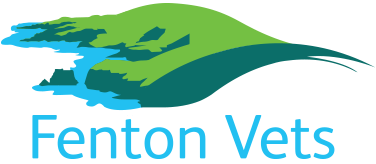Concern for the future independence of veterinary practices
A WELSH vet has voiced his concern for the future independence of veterinary practices as large corporations tighten their grip on the sector.
Richard Davies, a partner at the Pembrokeshire-based Fenton Veterinary Practice, is a leading advocate of independence in the veterinary industry.
He is retiring as a vet in a month that has seen more Welsh veterinary practices sold to corporate giants.
Some figures suggest that only half of practices in the UK are now independently owned.
It follows a reinterpretation of the law in 1999 allowing non-vets to become practice owners. Initial uptake was slow but this has accelerated recently, with a forecast of up to 80 per cent of practices becoming ‘corporate’.
Mr Davies, who grew up in north Wales where his father was a farm vet, says his practice had been approached almost monthly with a buyout offer.
Corporates have a variety of business structures and ‘reward’ the owners for selling up with various titles, but ultimately control those businesses including pricing, hours worked and targets, he says.
“The winners of the initial sale are the current practice owners, who are paid handsomely, and well beyond what it would be affordable or sensible for younger vets within the practice to buy into.
“Hence the ones in line to be the next partners or directors are the losers as the opportunity to buy in has gone, even though they may themselves have built up substantial goodwill with the clients.’’
There are around six large groups involved in buying up practices.
Farmers are often in the dark about the changes as the corporate owners often don't make many changes to naming and branding; as such, clients are often unaware of who owns the practice.
The business model is usually a roll-up model, where a medium-sized corporate buys up practices across the country with the aim of eventually selling on to a bigger company at a higher price having hit targets and realised synergies, often by centralising or devolving management practices.
This benefits shareholders without always giving consideration of the local employees, including the vets, says Mr Davies.
In some areas, this leads to ‘Phoenix’ practices being set up, where disillusioned young vets set up themselves to continue to offer a local independent service.
This is seen quite commonly in farm practice takeovers, where the client-vet bond is especially strong.
“If they stay they are potentially facing being managed centrally, both with working hours as well as being set targets or even told which diagnostic procedures need to be carried out and which drugs are authorised for use. The latter varies between the companies involved,’’ says Mr Davies.
But he concedes that there are some advantages to multiple ownership, including bulk buying and more ‘efficient’ management of practices and personnel.
However the client perspective of the 'local practice’ can easily be lost, albeit well-hidden through retention of as much of the original identity as possible, he adds.
“Some business models which tried to corporatise the identity have struggled to retain a solid client base.’’
Some practices have found solutions to remaining independent.
One example is membership of the XLVet group which was set up primarily as a sign of clinical excellence, whilst also allowing some benefits of a ‘group’ of practices working together but with every member fully independent.
